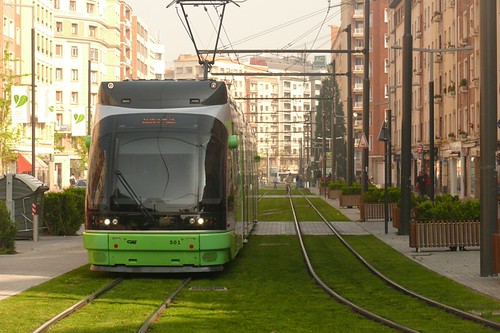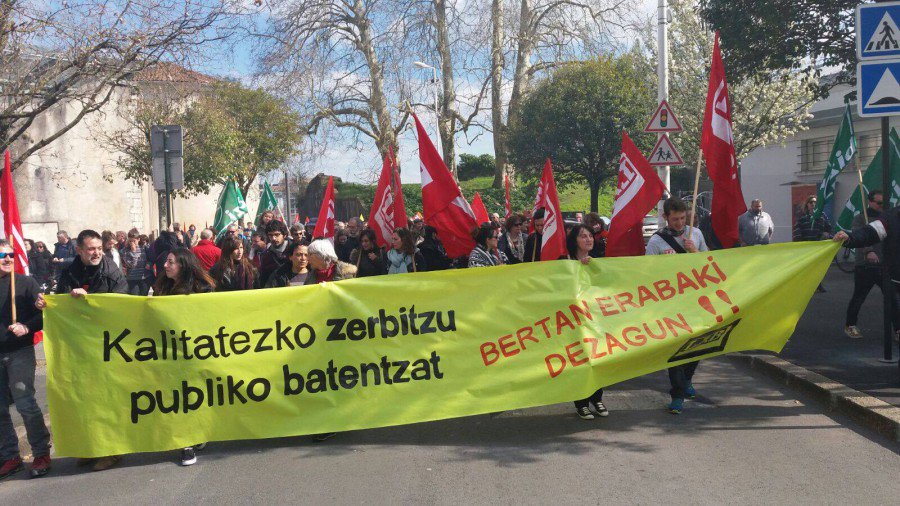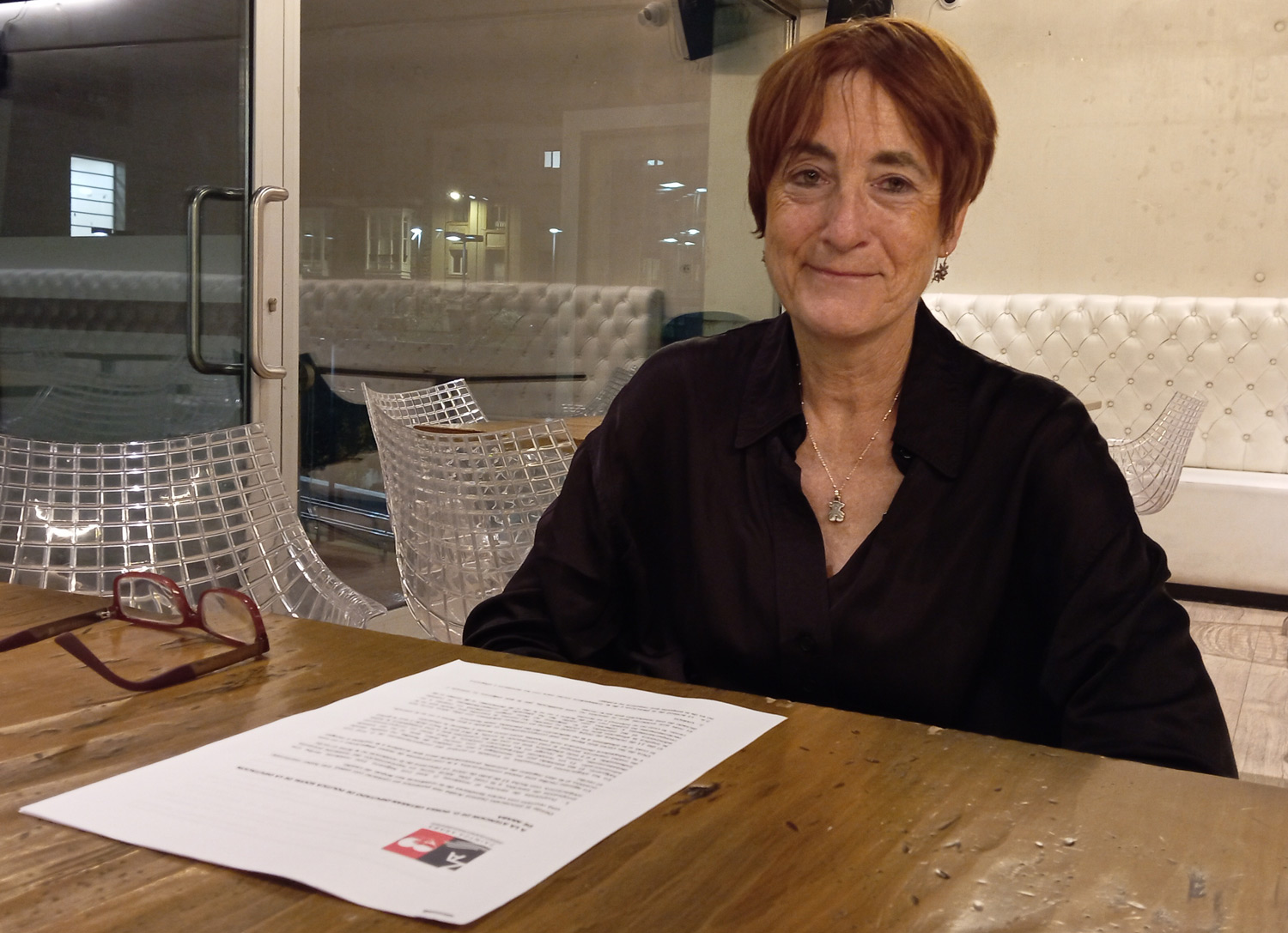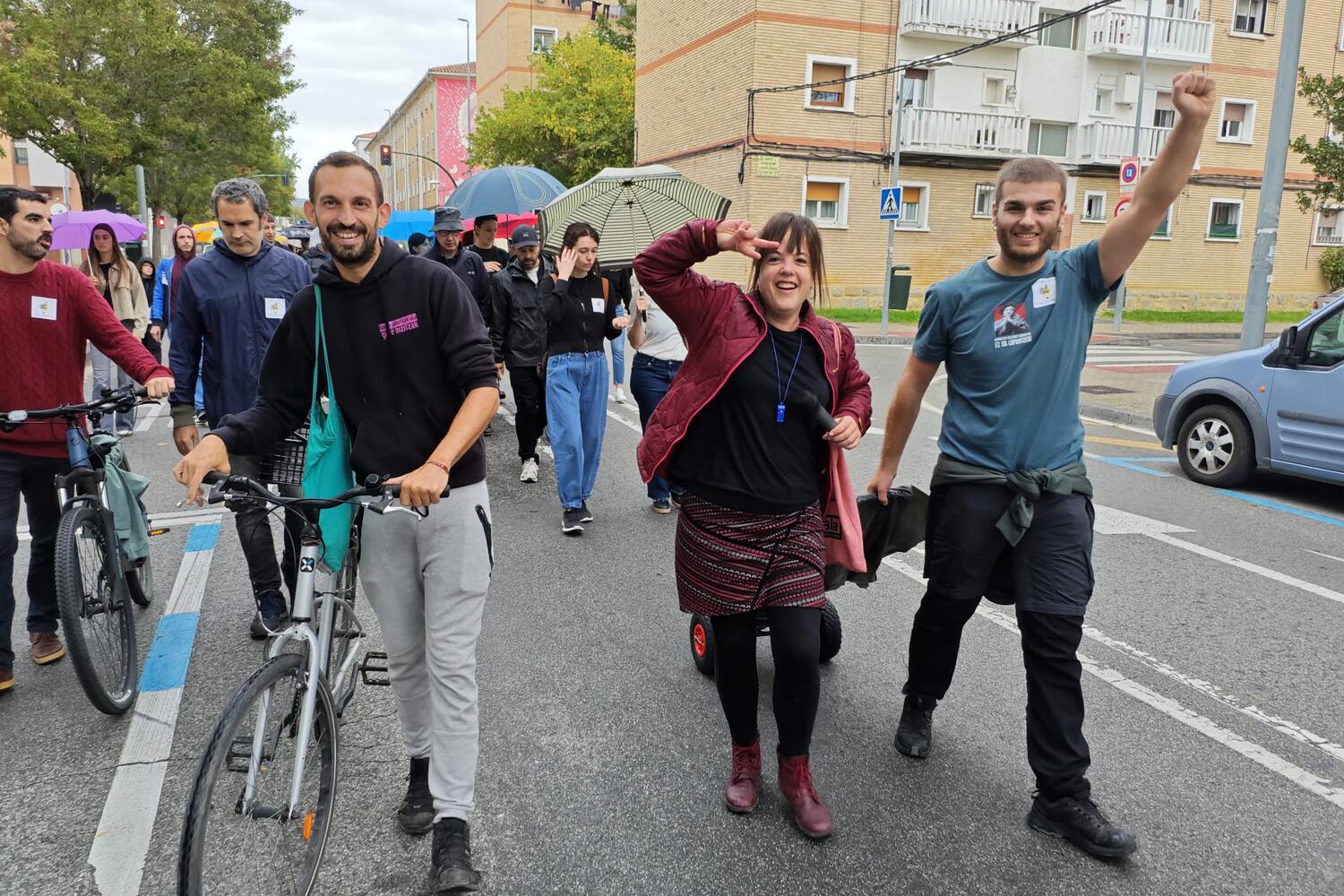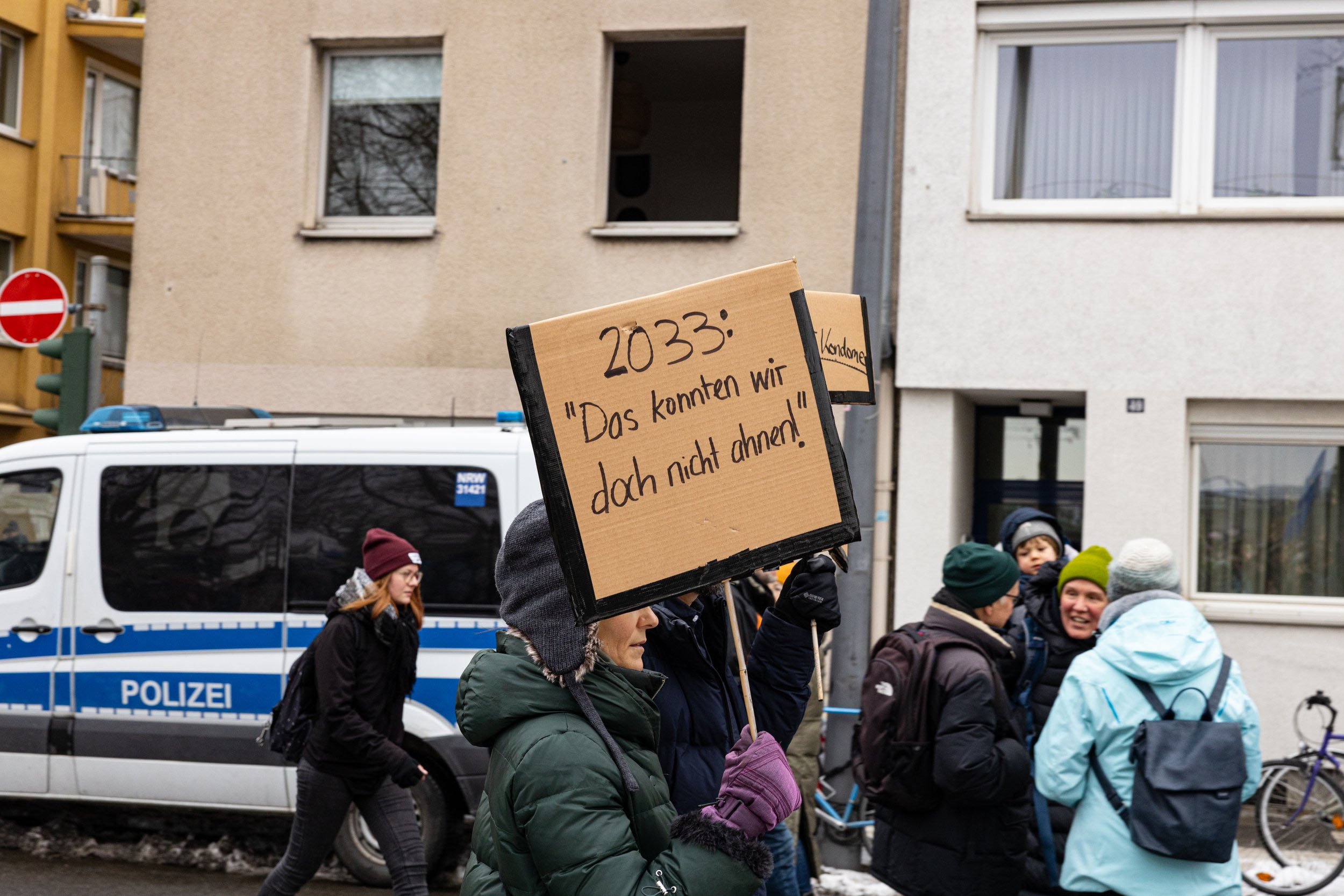You say the change, I say the cut
- The Provincial Council of Gipuzkoa is reshaping the lines and frequencies of the Lurraldebus public transport service which serves much of Gipuzkoa. In the municipalities of Alto Deba, Buruntzaldea and Tolosaldea created great concern about the Provincial Council’s initiative, which, as they have explained, leads to cuts.
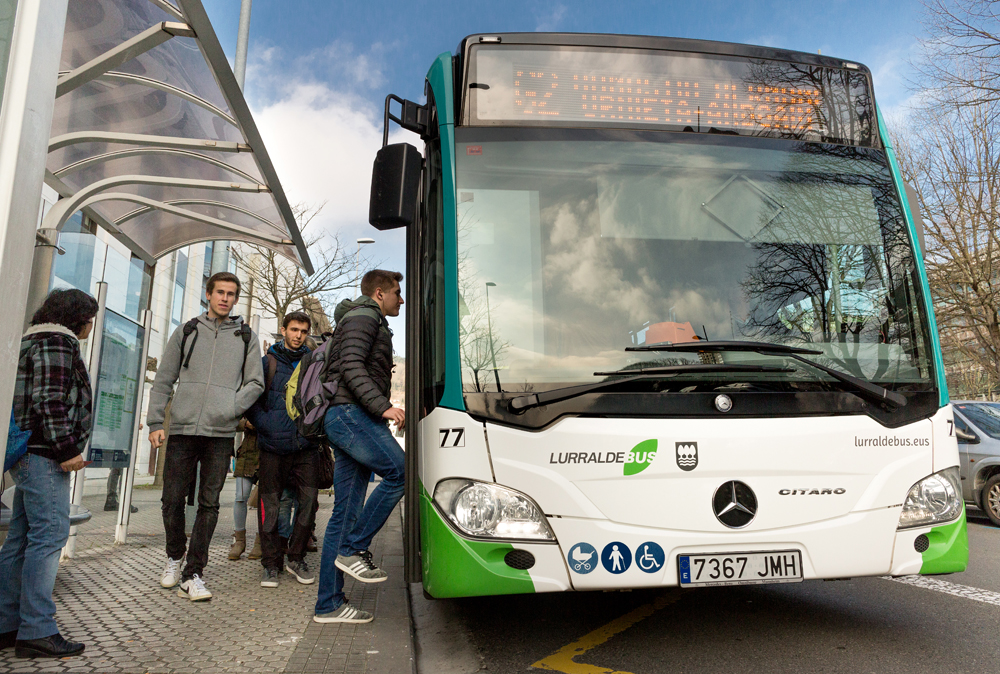
In 2017, the Provincial Council of Gipuzkoa, governed by the PNV and the PSE, made adjustments to the Lurraldebus bus bus service that connects the Gipuzkoan localities. In Debagoiena the changes in frequencies and routes took place in October 2017, while in Tolosaldea and Buruntzaldea the Provincial Council presented the preliminary draft last fall. However, the changes in the bus service have created a gap and, following the preliminary draft, opinions in favour and against have cast doubt on the proposal.
The Department of Mobility and Spatial Planning has identified the need to “reorganize” the service on the Buruntzaldea and Tolosaldea routes, to ensure “sustainable mobility” and to respond to the “real needs” of the citizens. “Our main function is to improve the public service”, said in the Faktoria program of the Basque Country Irratia the PSE Juntera and MEP in this matter, Marisol Garmendia. Garmendia has also referred to the “rationalization” of the lines that, in his opinion, are “oversized”.
The concession of the transport service, which has operated for 30 years, is planned to tender within the first four months of 2018 for another ten years, and is expected to be operational in May or June. The Deputy intends to bring together in a single concession the service that has so far been run by three companies, for which the High Court of Justice of the Basque Country holds a favourable judgment on other tenders in 2015: “They are the only areas that remain untendered.”
Amendments to the Lurraldebus lines in Debagoiena were launched on 2 October 2017. Especially in Oñati they are not happy. The first direct service to Aretxabaleta, Eskoriatza and Bergara has worsened with the reorganization, as they do not have the possibility to go by bus to those localities without changing lines. Another example was given by Mayor Mikel Biain: “In the case of Oñati, we have also lost the direct line between Bergara and Eibar.” The Diputación says that the change of bus has been a condition for maintaining the frequency of half an hour, but the councillor of Urbanismo de Oñati, Irati Etxeberria, explained in Gipuzkoako Hitza another opinion: “Oñatiarras gave us two opportunities, and for us both were bad.”
The municipalities of Andoain, Hernani and Usurbil say that the preliminary draft will result in the disappearance of 35% of the Lurraldebus service in their region.
Other municipalities in the region have also complained about the abolition of lines or the reduction of schedules. In the case of Bergara, the city council – governed by the PNV and the PSE- has just launched a survey to see the public’s opinion on the public bus service and the plenary unanimously approved the motion to denounce “the last cuts”.
Participatory Process Processing of Claims?
The preliminary draft law amending bus transport also in Tolosaldea and Buruntzaldea has created discomfort from the outset. Not only the content of the project, but also the way in which it is developed, have been criticized “for not counting with city councils and citizens”. In view of the impact that the remodeling of the service will have, representatives of the municipalities have also presented allegations to the project. The mayors of Andoain, Hernani and Usurbil have asked the Council to withdraw the draft and seek a consensus solution with the representatives of the municipalities. The Member, for her part, has been prepared to make changes, but in no case has she abandoned the preliminary draft.
The mayors of these three municipalities speak of cutbacks and have publicly denounced that the preliminary draft will bring with it the disappearance of 35% of the Lurraldebus service in their region. “There are services that have been withdrawn and that is very serious,” says Andoain Mayor Ana Karrere. He has set as an example the frequency of buses with which they travel from Andoain to Donostia Hospital. Throughout the week, the project foresees that the bus that is every half an hour is every hour.
The Mobility Department, among other things, uses a figure to confirm that the services will be “guaranteed and strengthened”: In the area between Tolosa and Donostia-San Sebastián the trips will be added every day from 55 to 62, and on the weekend there will also be buses that arrive directly to the capital, as before… “Is that the reduction?”, Garmendia said on the radio, in response to the complaint.
But these explanations are far from what they perceive in the peoples. In Usurbil, Eskoriatza, Oñati and Arrasate/Mondragón, the corresponding collection of signatures has been carried out in the face of the planned or already completed “cuts”. In the case of Tolosaldea, several municipalities have submitted allegations and the municipalities of Villabona and Tolosa have been dissatisfied with the Council’s preliminary draft.
A significant change is expected on the journey between Tolosa and Donostia-San Sebastian, as the frequency of buses will increase from half an hour to one hour. In particular, the number of buses from 33 to 18 circulating in Donostia-San Sebastián and the access service to universities early in the morning will be reduced from 8 to 4. The City Council of Tolosa has submitted an allegation requesting that the number of stops be maintained and that the frequency remains the same. In addition, all municipal groups have questioned the desirability of carrying out such a process without promoting citizen participation.
The Mobility Representative links the participation with compliance with the legal process of mandatory claims. Thus, he notes that the preliminary draft of Buruntzaldea and Tolosaldea is “provisional” and that they will study all the allegations received: “We will surely change the frequencies in the last project. In the case of Zubieta, for example, it has been our mistake and it will not take the line away.” In total, opposition groups have pointed out that some 3,000 claims have been made by citizens.

Dance of figures and data
The number of users of Lurraldebus increases: Compared to 2016 data, in the first six months of 2017 there were almost 4 points, with growth on almost all lines. Garmendia underlined that when making decisions the data is in line with what they say: “We know exactly when people use the bus, where it goes and at what time.” With this in mind, the rush hours of the morning will not only change but will be strengthened to “bring people to work, to the hospital or to the university.”
The representatives of EH Bildu and the General Councils of Podemos also have their data. The Provincial Council of Gipuzkoa, for its part, has now awarded a service of 3.5 million kilometres a year. The preliminary draft law provides for the award of 2.7 million kilometres per year, which is 23% less than kilometres. Garmendia has accused EH Bildu of wanting to "manipulate" and generate "alarm" in society, as, he said, the Abertzale coalition proposed the same changes and frequencies in 2015.
On the other hand, the Provincial Council argues that the changes made in other counties have yielded good results, for this reason they have focused on the number of users: In the Goierri, in 2016 there was an increase of 38.8% and in the first half of 2017 of 12.4%. In any case, during the last two legislatures the Diputación has carried out campaigns and participatory processes among citizens in the remodeling and use of the bus service in this region.
Not only the content of the project, but also the way to develop it has been very critical and some elects have denounced that “there has been no reliance on city councils and citizenship”
Workers are also concerned
The project proposal has also generated controversy among the bus service staff who have decided to mobilise. Workers from companies that have so far managed the Buruntzaldea and Tolosaldea route, with the support of UGT, ELA and LAB, appeared in November. For them there are also “cutbacks” the proposals by the Council and they say that when talking about a public service, “the general interest of society must be put above economic interests”.
Trade unions have warned that over 30 workers can lose their jobs – some 100 people are now working. In this regard, they have warned that "when it comes to removing services, many workers will be left over". On the contrary, the Mobility Department says that the preliminary draft provides for the subrogation of staff working in the awarded companies, so that the position and conditions will be maintained.
February is the month of awards for films produced last year. With the excuse of going to the movies, I want to bring the Perfect Days colloquium of Wim Wenders, a city and architecture.
In the extended synopsis of the film you can read that the plot of the film develops in the... [+]











.jpeg)
